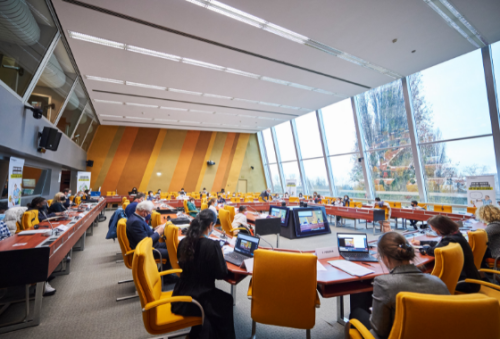« A PACE committee has proposed a number of ways to increase the Assembly’s exchanges with civil society, whose role in a democracy should be “celebrated and protected”, while also introducing a code of conduct to ensure that any exchanges with what it terms “interest representatives” – or lobbyists – are made as transparent as possible.
In a draft resolution, based on a report by Azadeh Rojhan (Sweden, SOC), the Committee on Legal Affairs and Human Rights said: “Whilst the exchange of information and ideas with public decision-makers is a vital part of democracy, it is also vital that this exchange is sufficiently transparent.”
As regards working with NGOs, the parliamentarians suggested that all PACE committee hearings should be open to the public as a general rule, with more live-streams of public hearings, and it should be easier for civil society representatives to participate in Assembly sessions and organise side-events. Introductory memoranda and minutes should be declassified as a general rule and more information made available online at an earlier stage.
“Interest representatives” seeking to influence the policies or decisions of the Council of Europe – on the other hand – should have to declare their identities, who they work for and what they are promoting. They should be required to act “honestly and in good faith”, without conflicts of interest, and should not use “undue pressure, offensive language or other improper behaviour”.
The committee also said that so-called “foreign agent laws” in a number of member states are undermining the operation or existence of legitimate groups, by using excessive regulation to “create an atmosphere of mistrust and a chilling effect on civil society”. It was concerned such measures – including in Bosnia and Herzegovina, Hungary and Georgia – will “damage civil society’s work in favour of human rights, democracy and the rule of law”. »
Source :Parliamentary Assembly

